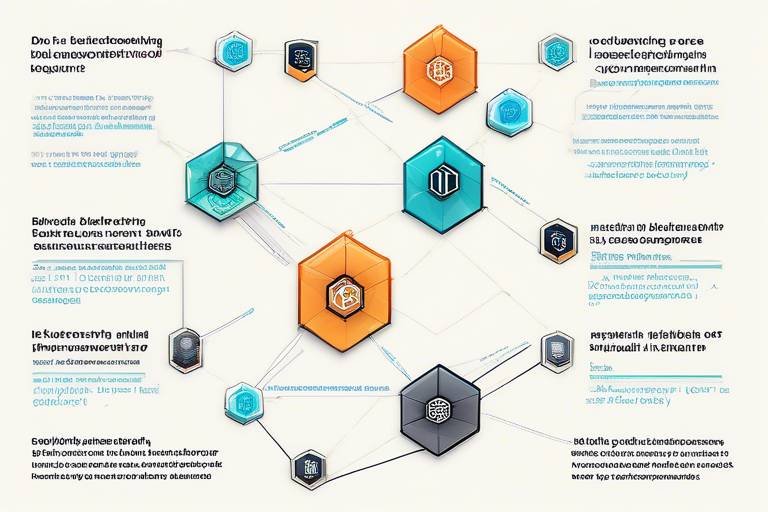How Blockchain Can Empower Local Farmers and Producers
In today's fast-paced world, local farmers and producers often find themselves at a crossroads, facing numerous challenges that threaten their livelihoods. However, the advent of blockchain technology is paving the way for a revolutionary transformation in the agricultural sector. Imagine a world where farmers can track their produce from the field to the consumer's plate, ensuring that every step of the journey is transparent, secure, and efficient. This is not just a dream; it is becoming a reality thanks to blockchain.
Blockchain, at its core, is a decentralized digital ledger that records transactions across multiple computers. This means that no single entity has control over the data, making it tamper-proof and highly secure. For local farmers, this technology can significantly enhance their operations by providing a trustworthy way to document every aspect of their agricultural practices. From crop management to sales, the potential applications of blockchain are vast and varied.
One of the most exciting aspects of blockchain is its ability to foster trust between farmers and consumers. In an age where consumers are increasingly concerned about the origins of their food, blockchain can provide detailed information about the entire supply chain. For instance, a consumer can scan a QR code on a product and instantly access data about where the food was grown, how it was harvested, and even the farming practices used. This level of transparency not only builds consumer confidence but also encourages loyalty to local producers.
Moreover, blockchain can streamline payment systems for farmers, making transactions faster and more efficient. Traditional payment methods often involve multiple intermediaries, leading to delays and higher costs. With blockchain, farmers can receive payments directly from consumers or businesses, cutting out the middlemen and ensuring they receive a fair price for their products. This can significantly increase their profits and provide them with greater financial security.
Another remarkable benefit of blockchain technology is its ability to connect local farmers with global markets. In the past, small-scale producers often struggled to access larger markets due to logistical challenges and high costs. However, with blockchain, farmers can sell their products directly to consumers around the world, breaking down barriers and expanding their market reach. This not only promotes fair trade but also allows farmers to establish better pricing for their goods, ultimately leading to improved livelihoods.
Additionally, the implementation of smart contracts on the blockchain can automate agreements between farmers and buyers. These contracts execute automatically when certain conditions are met, ensuring that both parties adhere to the agreed terms without the need for intermediaries. This innovation can not only enhance efficiency but also reduce operational costs, allowing farmers to focus more on their craft rather than administrative tasks.
Blockchain also has the potential to foster community support networks among local farmers. By facilitating resource sharing and collective bargaining, farmers can work together to strengthen their positions in the market. Imagine a group of farmers pooling their resources to purchase equipment or negotiate better prices for their products. This kind of collaboration can significantly enhance community resilience and empower local producers.
Of course, while the benefits of blockchain are numerous, it's essential to acknowledge the challenges that come with its implementation. Issues such as technology adoption, initial costs, and the need for education can hinder the integration of blockchain in agriculture. However, understanding these limitations is crucial for effectively harnessing the power of this technology.
As we look to the future, the potential for blockchain in agriculture seems brighter than ever. With ongoing innovation and collaboration, local farmers and producers can unlock new opportunities that were previously unimaginable. The landscape of agriculture is changing, and those who adapt to these changes will thrive in this new era.
- What is blockchain technology?
Blockchain is a decentralized digital ledger that securely records transactions across multiple computers, ensuring transparency and security. - How can blockchain benefit local farmers?
Blockchain enhances supply chain transparency, streamlines payment systems, connects farmers to global markets, and supports community networks. - What are smart contracts?
Smart contracts are self-executing contracts with the terms of the agreement directly written into code, allowing for automated transactions without intermediaries. - What challenges do farmers face in adopting blockchain?
Challenges include technology adoption, initial costs, and the need for education about blockchain systems.
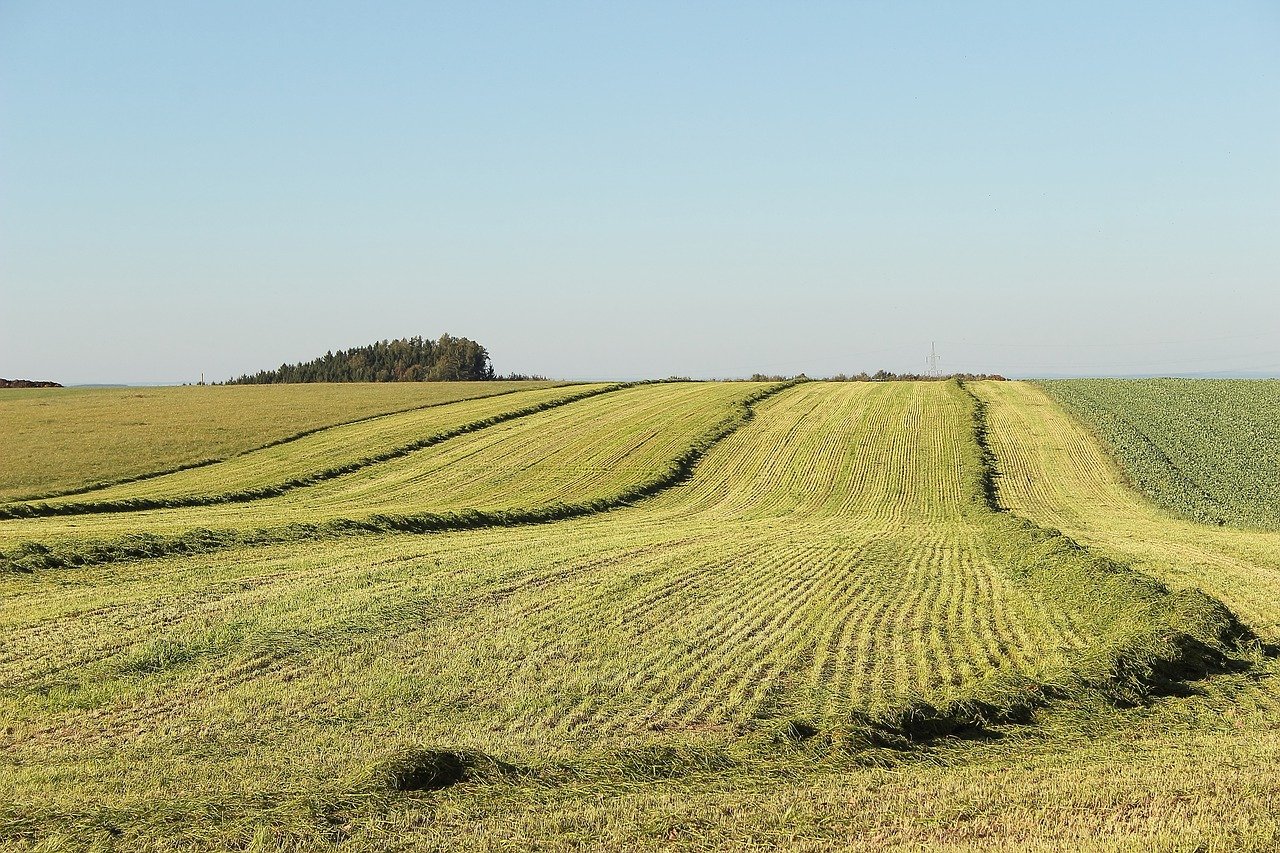
Understanding Blockchain Technology
Blockchain technology is a revolutionary digital ledger that operates on a decentralized network, allowing multiple parties to maintain a shared and secure record of transactions. Imagine a book where every page is visible to everyone, and no one can erase or alter what has been written—this is the essence of blockchain. Each transaction, or block, is linked to the previous one, forming a chain that is nearly impossible to tamper with. This remarkable feature not only enhances security but also fosters trust among users.
One of the most significant advantages of blockchain is its ability to provide transparency. For local farmers, this means that every step of their production process can be tracked and verified. Whether it’s the seeds they plant, the fertilizers they use, or the journey their products take to reach consumers, blockchain allows for complete traceability. This transparency is crucial in today's market, where consumers are increasingly concerned about the origins and quality of their food.
Furthermore, blockchain can enhance accountability. In traditional supply chains, it’s often difficult to pinpoint where things went wrong, leading to disputes and losses. However, with blockchain, every transaction is recorded and time-stamped, creating a clear audit trail. This not only helps in resolving conflicts but also empowers farmers to take control of their operations.
To illustrate the potential of blockchain in agriculture, consider the following table that outlines its key features and benefits:
| Feature | Benefit |
|---|---|
| Decentralization | Empowers farmers by removing intermediaries |
| Transparency | Builds consumer trust through traceability |
| Security | Protects data from tampering and fraud |
| Efficiency | Streamlines processes, reducing costs and time |
In summary, understanding blockchain technology is crucial for local farmers and producers looking to enhance their operations. By embracing this innovative solution, they can not only improve their productivity but also build stronger relationships with consumers. As we delve deeper into the various applications of blockchain in agriculture, it becomes clear that this technology holds the key to a more sustainable and equitable future for farmers everywhere.

Enhancing Supply Chain Transparency
Imagine biting into a juicy tomato, fresh from the farm, and knowing exactly where it came from. With blockchain technology, this scenario is not just a dream but a reality. By utilizing blockchain, farmers can track their products from the moment they are harvested to when they reach the consumer's plate. This level of transparency is revolutionary, fostering a sense of trust and loyalty among consumers who are increasingly concerned about the origins of their food.
One of the standout features of blockchain is its ability to provide an immutable record of every transaction. Each step of the supply chain can be recorded on the blockchain, creating a comprehensive history that is accessible to all stakeholders. This means that consumers can scan a QR code on their food packaging and instantly see the entire journey of that product. They can learn about the farm it was grown on, the methods used, and even the environmental practices involved. This not only builds trust but also empowers consumers to make informed choices that align with their values.
Furthermore, the enhanced transparency offered by blockchain can lead to significant benefits for farmers. When consumers have access to detailed information about the products they purchase, they are often willing to pay a premium for goods that are ethically sourced and of high quality. This means that local farmers can potentially increase their profits simply by being transparent about their practices. Additionally, transparency can help reduce food fraud, which is a growing concern in the agricultural sector. By providing verifiable proof of the origins and handling of food products, blockchain can deter dishonest practices and ensure that consumers receive what they pay for.
However, achieving this level of transparency requires collaboration across the entire supply chain. Farmers, distributors, retailers, and consumers must all be willing to participate in this system. The good news is that many stakeholders are recognizing the benefits of blockchain and are eager to adopt this technology. As more farmers and producers join the movement, the agricultural landscape will transform, leading to a more transparent and trustworthy food system.
In conclusion, enhancing supply chain transparency through blockchain technology not only benefits consumers by providing them with crucial information but also empowers local farmers by increasing their market value. The ripple effect of this transparency can lead to a more sustainable and ethical agricultural industry, where everyone—from the farm to the table—can thrive.
- What is blockchain technology? Blockchain is a decentralized digital ledger that records transactions across multiple computers, ensuring that the information is secure and transparent.
- How does blockchain enhance supply chain transparency? By recording every transaction related to a product, blockchain allows consumers to trace the origins and journey of their food, fostering trust and accountability.
- Can blockchain help farmers increase their profits? Yes, by providing transparency about the quality and origins of their products, farmers can potentially command higher prices from consumers who value ethically sourced goods.
- What challenges do farmers face in implementing blockchain? Some challenges include technology adoption, costs, and the need for education about how to use blockchain effectively.
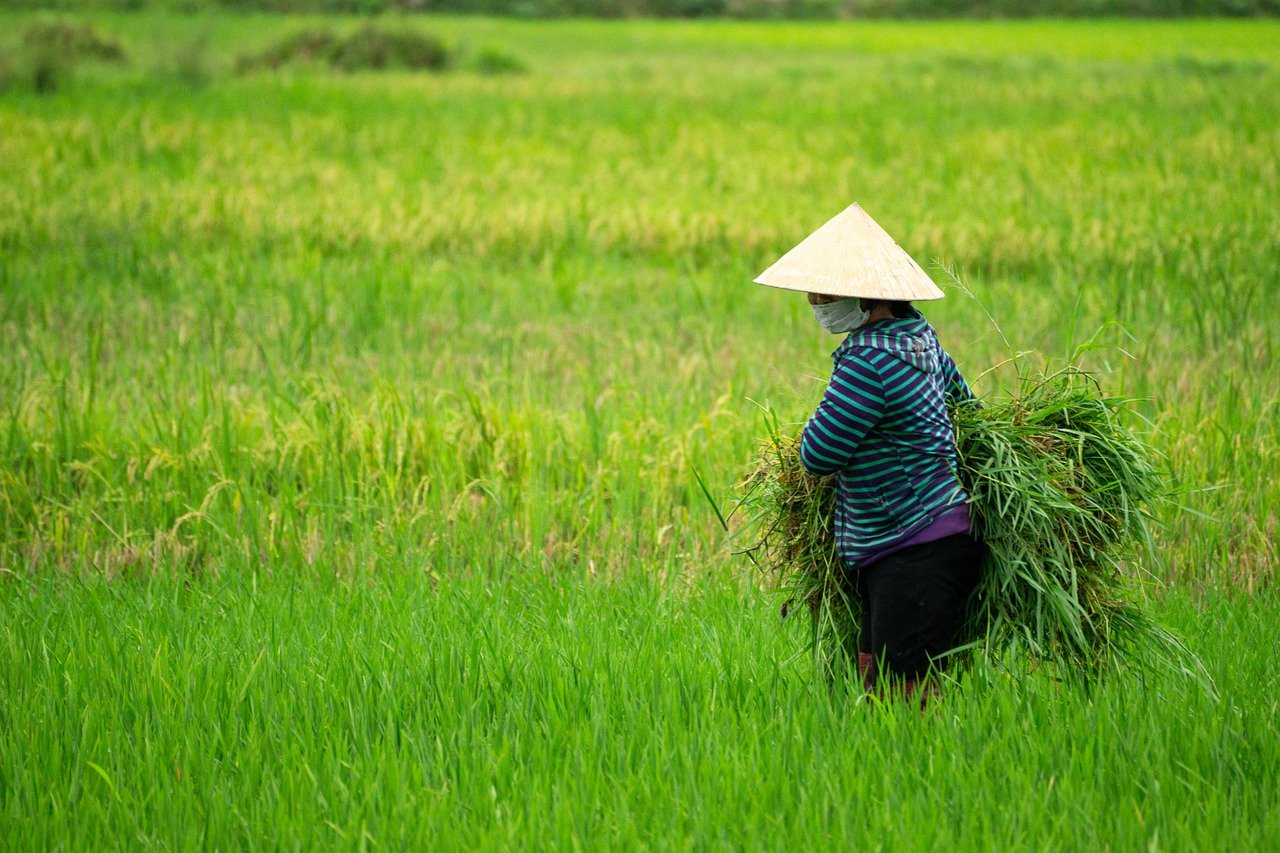
Improving Payment Systems
In the world of agriculture, timely payments can make or break a farmer's season. Imagine waiting weeks or even months to receive payment for your hard work; it’s like planting seeds and watching them wither due to lack of water. This is where blockchain technology comes into play, revolutionizing how local farmers handle their transactions. By leveraging blockchain, farmers can enjoy faster transactions and eliminate the need for intermediaries, which often complicate and delay payment processes.
With traditional payment systems, farmers frequently face challenges like high transaction fees and delayed payments. Blockchain addresses these issues by providing a direct line of communication between buyers and sellers. This means that instead of waiting for a bank or a payment processor to clear funds, farmers can receive payments almost instantly. Think of it as having a direct pipeline to your customer’s wallet, bypassing all the clutter of traditional banking systems.
Furthermore, blockchain technology enables microtransactions, allowing farmers to sell their products in smaller quantities without incurring hefty fees. This is particularly beneficial for local producers who might want to sell organic vegetables or artisanal goods. By facilitating these small-scale transactions, blockchain opens up a world of possibilities for farmers to reach a broader audience.
One of the most exciting aspects of blockchain is its ability to foster trust through transparency. When payments are processed on a blockchain, every transaction is recorded and can be verified by all parties involved. This level of accountability not only builds trust between farmers and buyers but also encourages fair pricing. Farmers can set their prices based on real-time market data, ensuring they receive fair compensation for their goods.
To illustrate the benefits, consider the following table that compares traditional payment systems with blockchain-based systems:
| Feature | Traditional Payment Systems | Blockchain Payment Systems |
|---|---|---|
| Transaction Speed | Days to Weeks | Instant |
| Transaction Fees | High | Low to None |
| Transparency | Limited | High |
| Trust Level | Moderate | High |
As we move forward, it’s essential for local farmers to embrace these changes. Education and access to technology will play a pivotal role in this transition. Farmers who familiarize themselves with blockchain technology will not only improve their payment systems but also enhance their overall business operations. It’s like upgrading from a horse-drawn carriage to a high-speed train; the difference in efficiency is monumental.
In conclusion, blockchain technology is paving the way for a new era in agricultural payments. By improving transaction speed, reducing costs, and enhancing trust, local farmers can secure their livelihoods while providing high-quality products to consumers. Just imagine the possibilities when farmers can focus more on growing their crops rather than worrying about when they will get paid!
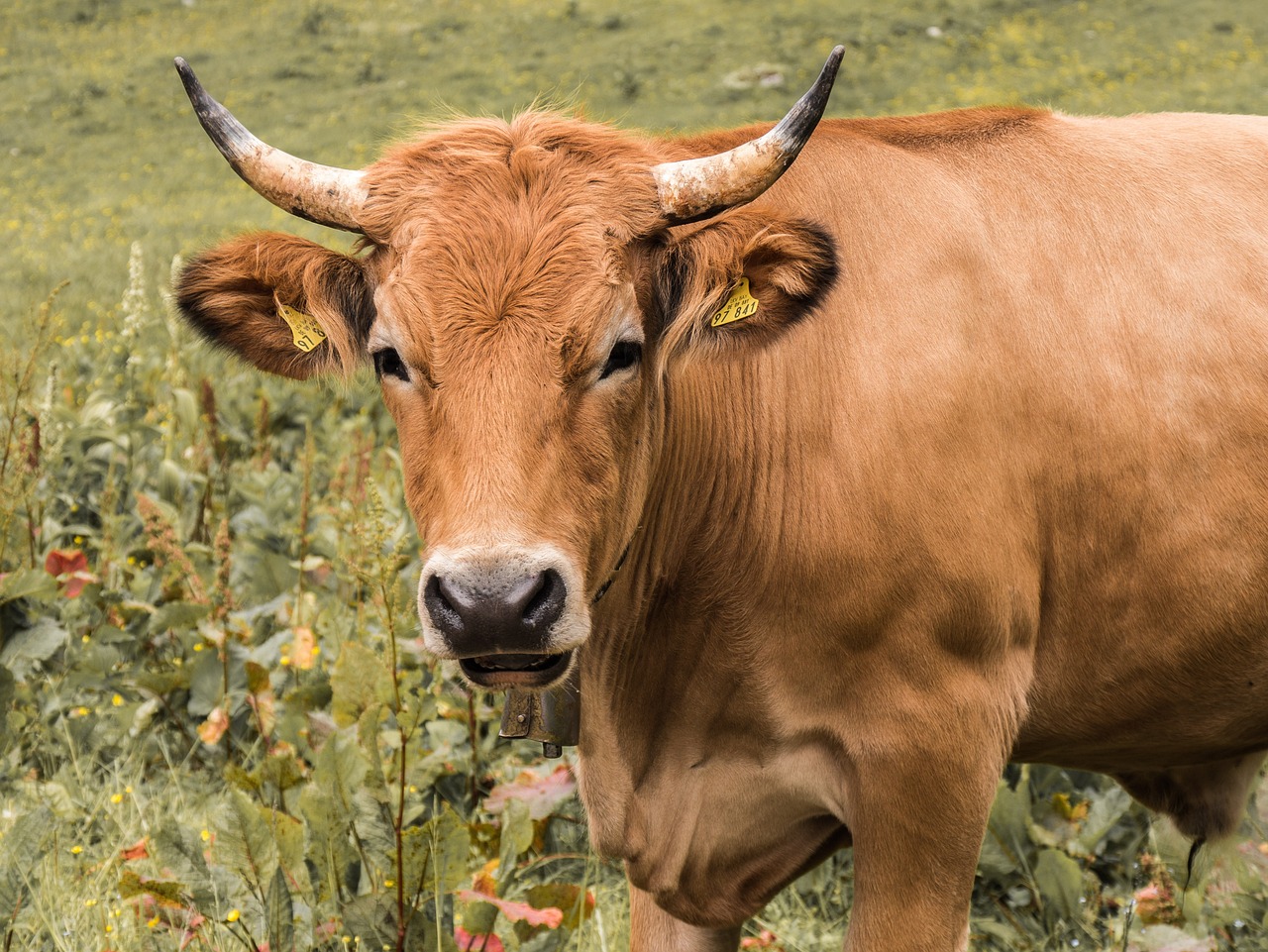
Accessing Global Markets
In today's interconnected world, local farmers and producers often find themselves at a disadvantage when it comes to reaching a broader audience. Traditional supply chains can feel like a maze, filled with intermediaries who take a hefty cut of the profits. This is where blockchain technology steps in like a superhero, ready to change the game. Imagine being able to connect directly with consumers and businesses from around the globe, cutting out the middlemen and maximizing profits. Sounds too good to be true? Well, it’s not!
With blockchain, local farmers can create a digital identity for their products, showcasing not just what they grow but also the story behind it. This means that consumers, whether they are in a bustling city or a remote village, can access information about the origins of their food. They can see the journey of their produce from the farm to their plate, which fosters a deeper connection and trust. Think of it as a digital passport for food items, where each transaction is recorded, verified, and transparent.
Moreover, by leveraging blockchain, farmers can participate in global marketplaces without the need for complex logistics or extensive networks. They can sell directly to consumers through platforms that utilize blockchain for secure transactions. This opens up a world of opportunities, enabling them to offer their products at fair prices while ensuring that they receive the bulk of the profits. Here are some key benefits of accessing global markets through blockchain:
- Direct Sales: Farmers can sell directly to consumers, eliminating the need for middlemen.
- Fair Pricing: By accessing global markets, farmers can set competitive prices based on demand.
- Increased Visibility: Blockchain enhances the visibility of local products, attracting a wider audience.
The potential for fair trade practices also increases, as consumers are more likely to support local farmers when they know exactly where their food is coming from. It’s a win-win situation: farmers gain access to a global audience, and consumers get to enjoy fresh, quality products while supporting sustainable practices. The ripple effect of this access can also contribute to community development, as increased sales can lead to better infrastructure, education, and resources for local farmers.
However, the journey to accessing global markets isn't without its challenges. Farmers must be equipped with the necessary tools and knowledge to navigate this new landscape. This includes understanding how to utilize blockchain platforms effectively and ensuring they have reliable internet access. Education and support are crucial in this transitional phase, as they empower farmers to take full advantage of the opportunities available to them.
In conclusion, blockchain technology offers local farmers a golden ticket to the global marketplace. By breaking down barriers and creating direct connections with consumers, it not only enhances their profitability but also fosters a sense of community and sustainability. The future looks bright for those who are willing to embrace this innovative technology and seize the opportunities it presents.

Smart Contracts in Agriculture
Imagine a world where farmers no longer worry about whether they will get paid for their hard work. Smart contracts are revolutionizing the agricultural landscape by automating agreements between farmers and buyers, ensuring that everyone plays by the rules without the need for a third party. This innovation is akin to having a trusted friend who guarantees that everyone keeps their promises. With smart contracts, the terms of the agreement are written into the blockchain, making them immutable and transparent.
So, how do smart contracts work in agriculture? When a farmer sells their produce, a smart contract can be created that outlines the conditions of the sale, such as:
- The quantity of produce
- The price per unit
- The delivery date
- The payment method
Once these conditions are met, the smart contract automatically executes the payment to the farmer without any delays or disputes. This not only saves time but also enhances the efficiency of transactions. Just picture it: no more waiting for checks to clear or dealing with complicated payment processes!
Moreover, smart contracts can be integrated with IoT (Internet of Things) devices. For instance, if a farmer has sensors in their fields that monitor crop health, these devices can trigger smart contracts based on real-time data. If the crops reach a certain quality or quantity, the smart contract can initiate a sale automatically. This level of automation and efficiency is a game-changer, allowing farmers to focus more on their agricultural practices rather than administrative tasks.
However, it’s essential to recognize that while smart contracts offer numerous benefits, they are not without their challenges. Farmers must have access to the necessary technology and education to utilize these tools effectively. Additionally, there remains a need for a robust legal framework to support the enforcement of smart contracts in agriculture. As the technology continues to evolve, collaboration between farmers, tech developers, and policymakers will be crucial to overcoming these hurdles.
In summary, smart contracts have the potential to transform the agricultural sector by streamlining transactions, reducing costs, and improving trust between parties. As we look to the future, embracing this technology could empower local farmers and producers, enabling them to thrive in an increasingly competitive marketplace.
Q: What are smart contracts?
A: Smart contracts are self-executing contracts with the terms of the agreement directly written into code on the blockchain.
Q: How do smart contracts benefit farmers?
A: They automate transactions, reduce the need for intermediaries, and ensure timely payments, enhancing efficiency and trust.
Q: Can smart contracts work with IoT devices?
A: Yes, smart contracts can be integrated with IoT devices to trigger automated actions based on real-time data.
Q: What challenges do farmers face when using smart contracts?
A: Challenges include technology adoption, access to education, and the need for a supportive legal framework.
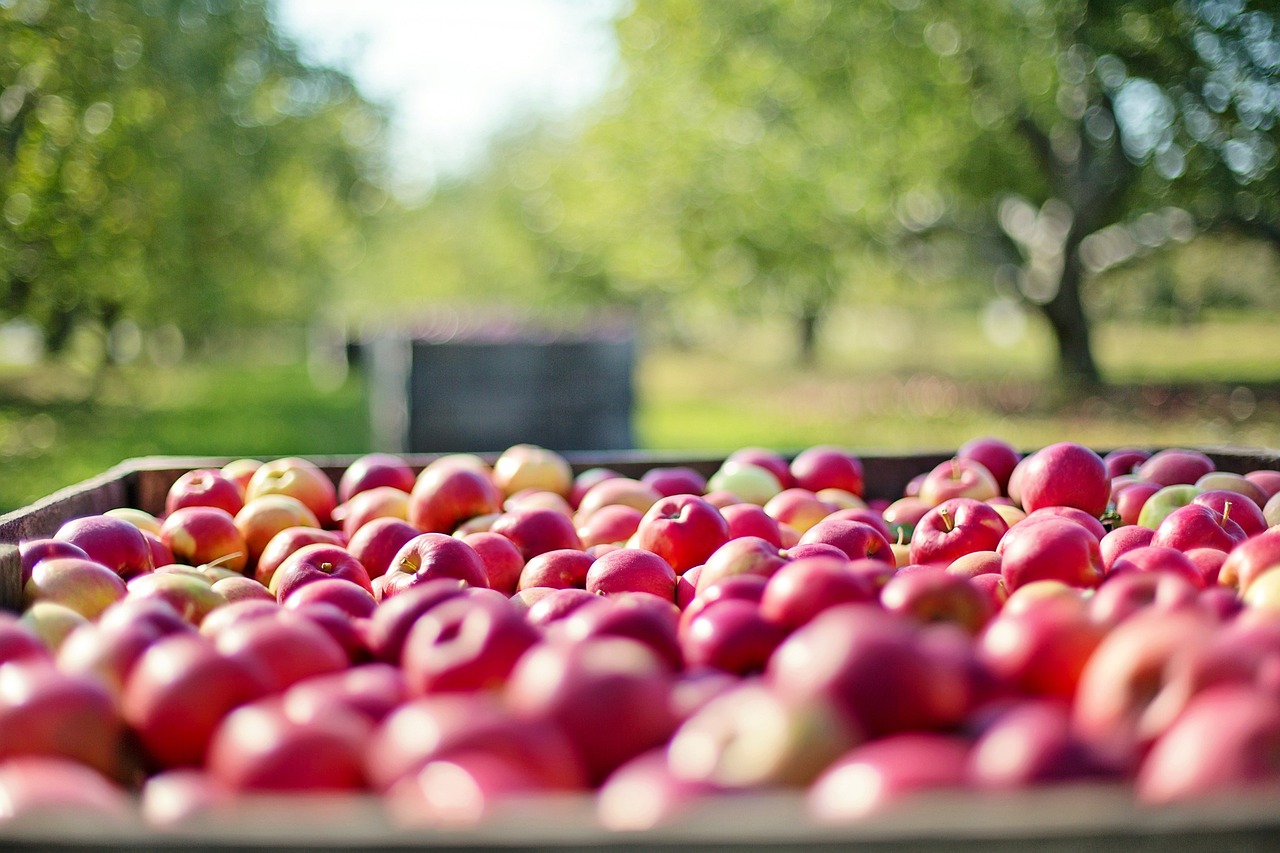
Building Community Support Networks
In today's fast-paced world, the importance of community cannot be overstated, especially for local farmers and producers. through blockchain technology can be a game-changer. Imagine a system where farmers can easily connect with one another, share resources, and collaborate on projects that benefit everyone involved. This isn't just a dream; it's a reality that blockchain can help create.
By utilizing blockchain, farmers can form cooperative networks that allow them to pool resources, share knowledge, and negotiate better prices for their products. This collective approach not only enhances their bargaining power but also fosters a sense of unity and support within the community. When farmers work together, they can tackle challenges more effectively, whether it's dealing with market fluctuations or adverse weather conditions.
One of the most exciting aspects of blockchain is its ability to facilitate transparent and secure communication among community members. For instance, farmers can share information about best practices, crop yields, and market trends without the fear of data manipulation. This level of transparency helps build trust, which is essential for any thriving community. Imagine a farmer in a small town sharing their successful organic farming techniques with others, leading to a ripple effect of improved agricultural practices.
Additionally, blockchain can enable farmers to establish a direct line of communication with consumers. Through a decentralized platform, customers can learn about the farmers behind their food and the practices they use. This not only promotes local produce but also strengthens the community's economy. When consumers know the story behind their food, they're more likely to support local farmers, creating a cycle of trust and loyalty.
To illustrate the potential of community support networks, consider the following table that showcases the benefits of collaboration among farmers:
| Benefit | Description |
|---|---|
| Resource Sharing | Farmers can share equipment, seeds, and knowledge, reducing costs and improving efficiency. |
| Collective Bargaining | By banding together, farmers can negotiate better prices for their products and inputs. |
| Mutual Support | Farmers can provide emotional and practical support to one another during challenging times. |
| Knowledge Exchange | Sharing experiences and techniques can lead to improved farming practices across the community. |
In conclusion, through blockchain technology is not just about improving agricultural practices; it's about creating a resilient and supportive ecosystem. By fostering collaboration, transparency, and trust, local farmers can thrive together, ensuring a sustainable future for themselves and their communities. So, let's embrace the power of blockchain and start building those networks today!
Q: How can blockchain help farmers connect with each other?
A: Blockchain facilitates secure and transparent communication, allowing farmers to share resources and knowledge easily.
Q: What are the benefits of cooperative networks for local farmers?
A: Cooperative networks enable resource sharing, collective bargaining, and mutual support, leading to increased efficiency and better prices.
Q: How does transparency in blockchain build trust within the community?
A: Transparency ensures that all members have access to the same information, reducing the risk of data manipulation and fostering trust.

Data Security and Privacy
In an age where data breaches and privacy concerns are rampant, data security and privacy have become paramount, especially for local farmers and producers. With blockchain technology, farmers can rest easy knowing that their sensitive information is securely stored and protected from unauthorized access. Imagine a digital vault where every piece of data is locked away, with only authorized parties holding the key; that’s the essence of blockchain. This technology not only safeguards operational data but also ensures that farmers maintain control over who can access their information.
One of the most significant advantages of using blockchain in agriculture is its ability to provide immutable records. Once data is entered into the blockchain, it cannot be altered or deleted, creating a permanent and verifiable record. This feature is particularly beneficial for farmers who want to keep track of their production processes, certifications, and compliance with regulations. By having this transparent and tamper-proof record, farmers can confidently share their data with stakeholders, including consumers, suppliers, and regulatory bodies.
Moreover, blockchain's decentralized nature means that there is no single point of failure. In traditional data storage systems, a breach can compromise the entire database. However, in a blockchain system, data is distributed across a network of computers, making it much harder for hackers to infiltrate and steal sensitive information. This decentralization not only enhances security but also builds trust among consumers who are increasingly concerned about where their food comes from and how it is produced.
Farmers can also benefit from privacy features inherent in blockchain technology. They can choose what information to share and with whom, allowing them to protect their business secrets while still providing necessary data for transactions. For instance, a farmer might share crop yields and quality data with a buyer while keeping financial details private. This selective sharing fosters a sense of control and empowerment, enabling farmers to navigate the marketplace more effectively.
However, it’s important to acknowledge that while blockchain offers robust security features, it is not entirely foolproof. Farmers must remain vigilant and educate themselves about best practices for using this technology. Understanding the potential risks, such as phishing attacks or social engineering, is crucial. By combining blockchain’s security with proactive measures, farmers can create a fortified environment for their data.
In conclusion, the integration of blockchain technology in agriculture not only enhances data security but also empowers farmers to manage their information with greater autonomy. As the agricultural landscape continues to evolve, embracing these innovations can lead to a more secure, transparent, and efficient industry.
- What is blockchain technology? Blockchain is a decentralized digital ledger that records transactions across many computers in a way that the registered data cannot be altered retroactively.
- How does blockchain enhance data security for farmers? It provides immutable records and decentralizes data storage, making it harder for unauthorized access and breaches.
- Can farmers control who accesses their data on blockchain? Yes, farmers can selectively share information while keeping other details private, ensuring they maintain control over their data.
- What are the challenges of implementing blockchain in agriculture? Challenges include technology adoption, initial costs, and the need for education and training among farmers.

Challenges and Limitations
While the potential of blockchain technology in agriculture is exciting, it’s essential to recognize the that come with its implementation. First and foremost, the adoption of blockchain requires a certain level of technological literacy among farmers, many of whom may not have the necessary training or resources. Imagine a farmer who has spent decades perfecting their craft but is now faced with the daunting task of learning a complex digital system. This gap in knowledge can create barriers to entry and slow down the overall adoption process.
Moreover, the initial investment costs for implementing blockchain solutions can be significant. Farmers often operate on tight margins, and the thought of investing in new technology might seem risky. It’s like asking someone to buy a new tractor when their old one still works, albeit inefficiently. They might be hesitant to make that leap without a clear understanding of the return on investment.
Another challenge is the interoperability of different blockchain platforms. Currently, there are numerous blockchain solutions available, each with its own protocols and standards. This fragmentation can lead to confusion and inefficiencies. For instance, if one farmer uses a specific blockchain platform and their buyer uses another, how do they connect? It’s akin to trying to communicate in different languages without a translator. This lack of compatibility can hinder the seamless flow of information that blockchain promises.
Additionally, while blockchain offers enhanced security, it is not entirely foolproof. Cybersecurity threats are a growing concern, and as more farmers adopt digital solutions, the risk of hacking and data breaches increases. Farmers must ensure they have robust security measures in place to protect their sensitive information. This concern can create a sense of unease, especially for those who are already wary of technology.
Lastly, the regulatory landscape surrounding blockchain in agriculture is still evolving. Governments and regulatory bodies are grappling with how to integrate this technology within existing frameworks. Farmers may find themselves navigating a complex maze of regulations, which can be daunting and time-consuming. It’s like trying to find your way through a dense forest without a map—frustrating and overwhelming.
In summary, while blockchain holds great promise for enhancing the livelihoods of local farmers, it is crucial to address these challenges head-on. By investing in education, fostering collaboration among different platforms, ensuring robust security measures, and advocating for supportive regulations, the agricultural sector can unlock the full potential of this transformative technology.
- What are the primary challenges farmers face when adopting blockchain technology?
Farmers often struggle with technological literacy, high initial costs, interoperability issues among different blockchain platforms, cybersecurity threats, and navigating complex regulations. - How can farmers overcome the barriers to blockchain adoption?
Investing in education and training, collaborating with technology providers, and advocating for supportive regulations can help farmers effectively adopt blockchain solutions. - Is blockchain technology secure for agricultural data?
While blockchain provides enhanced security, it is not immune to cyber threats. Farmers must implement robust security measures to protect their data.
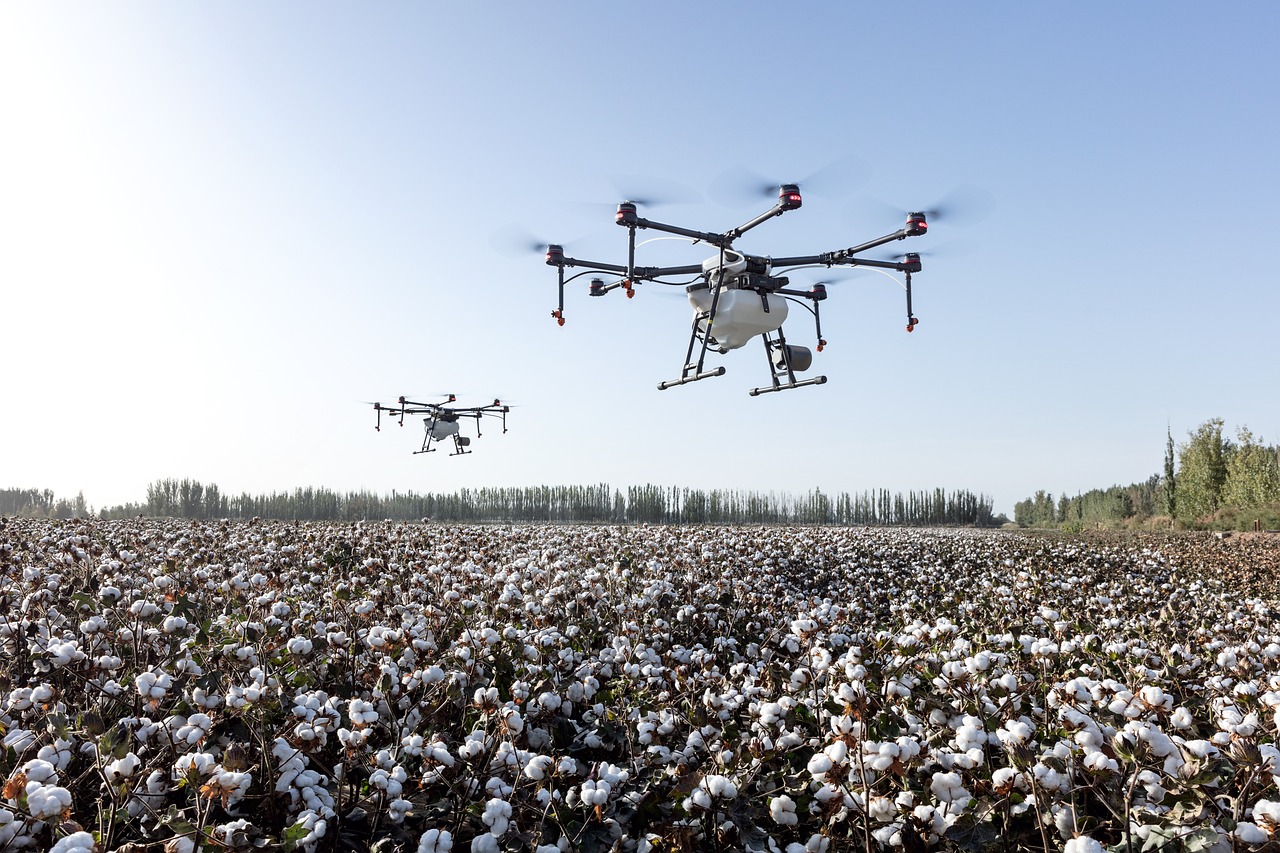
The Future of Blockchain in Agriculture
The future of blockchain technology in agriculture is not just bright; it’s practically glowing with potential! As we look ahead, the integration of blockchain into farming practices promises to revolutionize the way local farmers and producers operate. Imagine a world where farmers can effortlessly track their produce, ensuring that every tomato or apple is accounted for from the moment it’s harvested to when it reaches your plate. This level of transparency is not just a dream; it's becoming a reality, and it’s set to reshape the agricultural landscape.
One of the most exciting prospects is the ability for local farmers to harness the power of data analytics. With blockchain, farmers can collect and analyze data on crop yields, soil health, and market trends, allowing them to make informed decisions that optimize their production and sustainability. This means that not only can they produce more, but they can also do so in a way that is kinder to our planet. Think about it: a farmer armed with real-time data can adjust their practices to reduce waste, conserve water, and improve soil health, all while increasing their profits.
Moreover, as blockchain technology evolves, we can expect the emergence of even more advanced tools tailored for agriculture. For instance, the integration of artificial intelligence with blockchain could lead to predictive analytics, helping farmers anticipate market demands and adjust their planting schedules accordingly. This synergy could drastically reduce food waste and ensure that consumers have access to fresh produce when they need it most.
However, it’s not just about technology; it’s also about community. The future of blockchain in agriculture is poised to foster stronger connections between farmers and consumers. With platforms that allow direct sales, farmers can build relationships with their customers, share their stories, and promote their products without relying on middlemen. This direct interaction not only enhances customer loyalty but also allows farmers to receive fair prices for their goods. In a sense, it creates a farm-to-table ecosystem that benefits everyone involved.
Yet, as we embrace this future, we must also acknowledge the challenges that lie ahead. The adoption of blockchain technology requires investment in infrastructure and education. Farmers need to be equipped with the knowledge and tools to effectively use these systems. As such, collaboration between tech developers, agricultural organizations, and educational institutions will be critical in paving the way for a successful transition. Through workshops, training programs, and community outreach, we can ensure that all farmers, regardless of their size or resources, can participate in this digital revolution.
In conclusion, the future of blockchain in agriculture is not just about technology; it’s about creating a sustainable and equitable food system. As we continue to innovate and collaborate, we are not just changing the way we farm; we are transforming the very essence of our food supply chain. With each step forward, we are building a resilient agricultural community that can thrive in the face of challenges and uncertainties. So, the question is, are you ready to embrace this future?
- What is blockchain technology? - Blockchain is a decentralized digital ledger that securely records transactions across multiple computers.
- How can blockchain benefit farmers? - It enhances transparency, improves payment systems, and provides access to global markets.
- Are there challenges to implementing blockchain in agriculture? - Yes, challenges include technology adoption, costs, and the need for education.
- What role do smart contracts play in agriculture? - Smart contracts automate agreements between farmers and buyers, reducing disputes and improving efficiency.
Frequently Asked Questions
- What is blockchain technology?
Blockchain technology is a decentralized digital ledger that securely records transactions across many computers. This means that once data is entered, it can't be altered without the consensus of the network, ensuring transparency and trust.
- How can blockchain enhance supply chain transparency for farmers?
By using blockchain, farmers can track their products from the farm to the consumer's table. This traceability allows consumers to see where their food comes from and how it was produced, which builds trust and loyalty towards local producers.
- Can blockchain improve payment systems for farmers?
Absolutely! Blockchain can facilitate faster and more secure payment transactions, reducing the need for intermediaries. This not only saves time but also increases profits for farmers by minimizing transaction fees.
- How does blockchain help local farmers access global markets?
Blockchain enables local farmers to connect directly with consumers and businesses around the world. This direct access eliminates barriers and promotes fair trade practices, allowing farmers to receive better prices for their products.
- What are smart contracts, and how do they work in agriculture?
Smart contracts are self-executing contracts with the terms of the agreement directly written into code on the blockchain. In agriculture, they can automate transactions between farmers and buyers, ensuring that both parties meet their obligations without disputes.
- How can blockchain foster community support networks among farmers?
Blockchain can help create cooperative networks where local farmers share resources, engage in collective bargaining, and support each other. This collaboration strengthens community resilience and enhances their bargaining power in the market.
- Is data security a concern for farmers using blockchain?
Not at all! One of the key advantages of blockchain is its secure data storage capabilities. Farmers can protect sensitive information about their operations while still allowing access to necessary data for stakeholders.
- What challenges do farmers face when implementing blockchain technology?
While blockchain has great potential, challenges such as technology adoption, cost, and the need for education can hinder its implementation in agriculture. Addressing these limitations is essential for successful integration.
- What does the future hold for blockchain in agriculture?
The future looks bright! As technology continues to evolve, blockchain can unlock new opportunities for local farmers and producers. Continued innovation and collaboration are key to transforming the agricultural industry.













